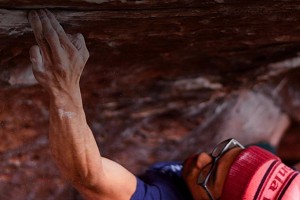
Back in 1975 when John Allen completed the first free ascent of Great Wall it was considered as ‘invalid’ due to his use of chalk, quite remarkable seeing that these days it is considered a basic commodity. However, basic an ingredient though it is – is there a difference between the differing brands of chalk that are available?
Background
It was a few years ago when I first noticed that chalk isn’t necessarily just chalk and that performance does vary. There was one particular moment when I was trying the classic gritstone problem West Side Story and things weren’t going quite going to plan. My climbing partner was having better luck, as he could successfully hold the crucial knuckle wrapping crimp with his left hand (which I couldn’t). In a last ditch attempt to complete the problem I jokingly grabbed his chalk-bag for luck - things were getting that desperate - then proceeded to latch, grip and complete the move I had previously found impossible (only to fail slightly higher).
Moving on to present day, this event is something that I had virtually forgotten about until I heard about Friction Labs Chalk. Friction Labs specialise in ‘premium’ chalk, something of a new concept to many, but after my experience several years ago it struck a chord and offered an explanation as to why simply using another brand of chalk had made a difference.
Technical
Chalk consists of both Magnesium Carbonate and Calcium Carbonate. The former traps moisture on the inside, leaving the surface feeling dry; the latter pushes water to the outside, resulting in a dampness and moisture.
So, why use the latter?
In short, because it’s cheaper. Magnesium Carbonate costs more – a lot more - and if you wish for that increase in performance it’s going to cost and this is the point that many will baulk and stop reading. To put it into context, 5oz of Friction Labs Chalk comes in at £11 in comparison to the market average that I would say is nearer £3.00 - £3.50.
Whilst I hate focusing reviews around price, realistically this is the question that everyone wants to know: is it worth it?
In Use
I’ve already recounted one example of my experiences with other premium chalk, but how did Friction Labs compare throughout day-to-day use?
Over the past few months I have alternated between Friction Labs Chalk and standard chalk for limestone sport climbing (on-sight + red-point) and bouldering. What I noticed immediately was the same as before: your hands creep less on the holds. This was the reason for my being able to hold the hold on West Side Story all those years ago. This lack of movement has the added benefit that your skin tends to drag less and as a result stay in better shape (less creep > less dragging > less tearing > less flappers etc..). On more than one occasion I have failed to complete a project not due to strength, but to skin – hence saving what little I’ve got is something I am willing to pay for.
The next thing I noticed was how infrequently I chalked up. Friction Labs chalk seems to stick and hold onto your hands for much longer than standard chalk, something became all the more noticeable when I went back to using my old chalk-bag. On redpoints this meant that I didn’t need to chalk up as frequently, hence I didn’t have to hang around quite as long en-route. Given that my project throughout the duration of this review was a roof/overhang I was grateful as ‘time’ was something of the essence! In addition to this, because you use less of it you go through it at a slower pace - hence that extra money you've spent buying it actually lasts a bit longer than it would usually.
The only drawback I could find, and it’s quite a tenuous one, is that when conditions are truly awful (i.e. the rock is greasy) then the benefits unsurprisingly disappear – it’s not a miracle worker. Visit somewhere like LPT or the Diamond on a bad day and this stuff isn’t going to save you. Also, if it’s a windy day the financial implications of your bag inverting are slightly more severe than usual…
Finally, it's a matter of personal preference but this review wouldn't be complete without mentioning that there are three different 'blends' available: Unicorn Dust (Fine), Bam Bam (Super Chunky) and Gorilla Grip (Chunky). I personally favoured the chunky end of things, as for some reason or another - maybe it's just my imagination - but I've always found superfine chalk a little off-putting/slippy.
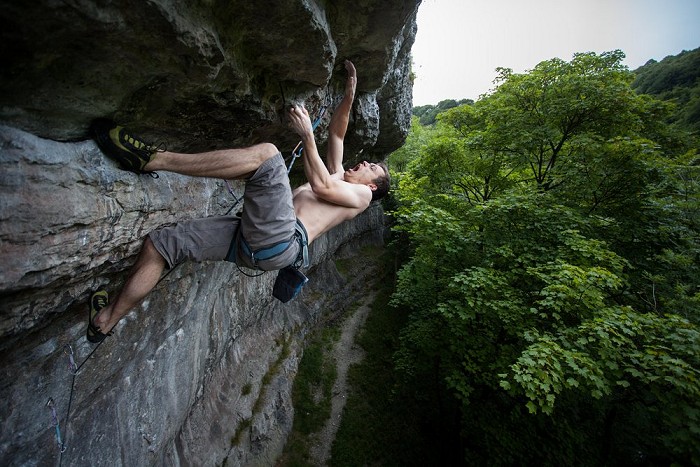
Overall
So, is it worth the price?
This is a premium product for a performance user, hence not for everyone. If you take your bouldering/sport climbing seriously then I would recommend trying out some of the smaller sachets that are available for sale, the difference is noticeable – particularly when you switch back to your old chalk.
The only problem is that once you’ve tried it you will soon begin to find it very difficult to go back to using standard chalk so be warned! I for one will be using it this winter for projects out on the Grit…
What Friction Labs say:
Friction Labs is the best chalk you’ll ever use, once you’ve tried it there’s no going back to your old brand. Now for the first time the innovative blends of white powder are now available in the UK.
Developed by a group of long-time climbers who were in search of increasing their performance. After years of obsessing over the rubber and fit of their shoes but totally ignoring the quality of the powder on their hands they saw an opportunity to develop something new.
For people who say “chalks just chalk” Friction Labs will change your mind. Recently a team of world-class geologists and chemists conducted independent tests on the five most common chalks for rock climbing. The results were clear: Friction Labs chalk is the purest chalk out there.
Unicorn Dust, Bam Bam and Gorilla Grip are the 3 blends of Friction Labs, they are all chemically developed in the same way so picking one just depends on your own personal preference of the texture.
MORE INFO: Friction Labs Website



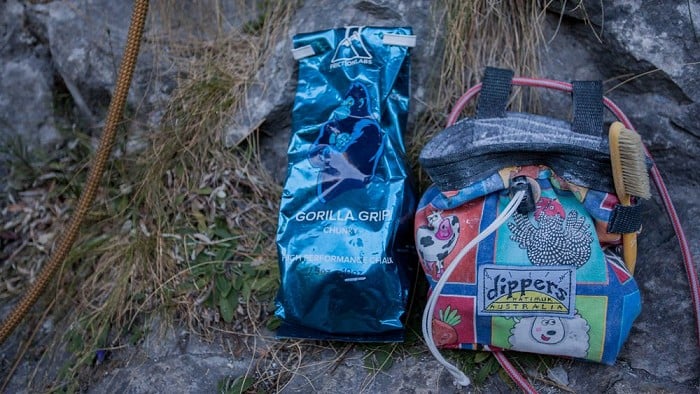
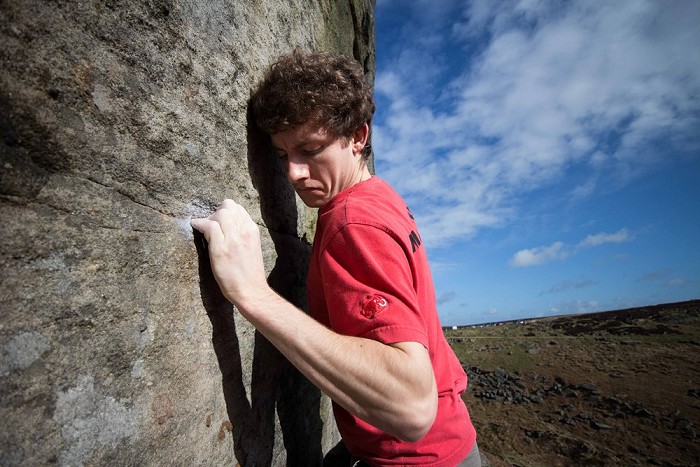
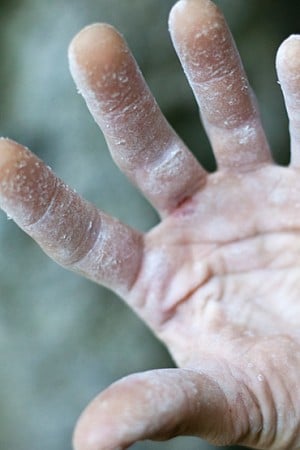
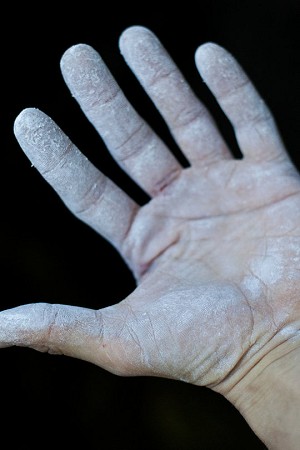
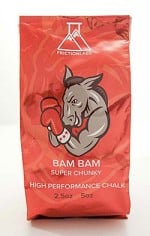
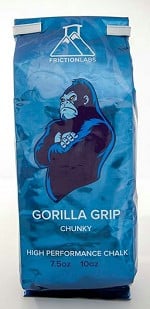
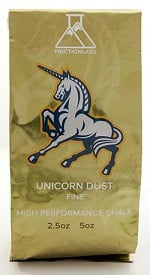
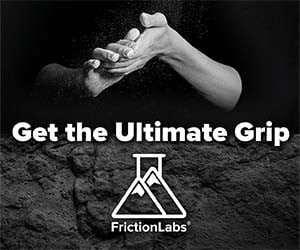
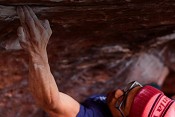
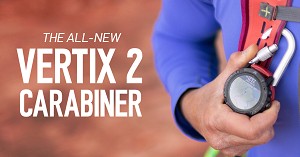

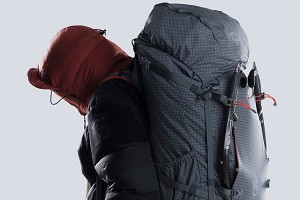
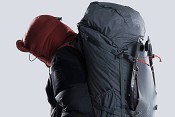
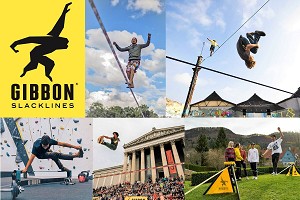
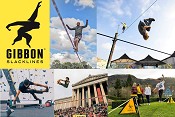
Comments